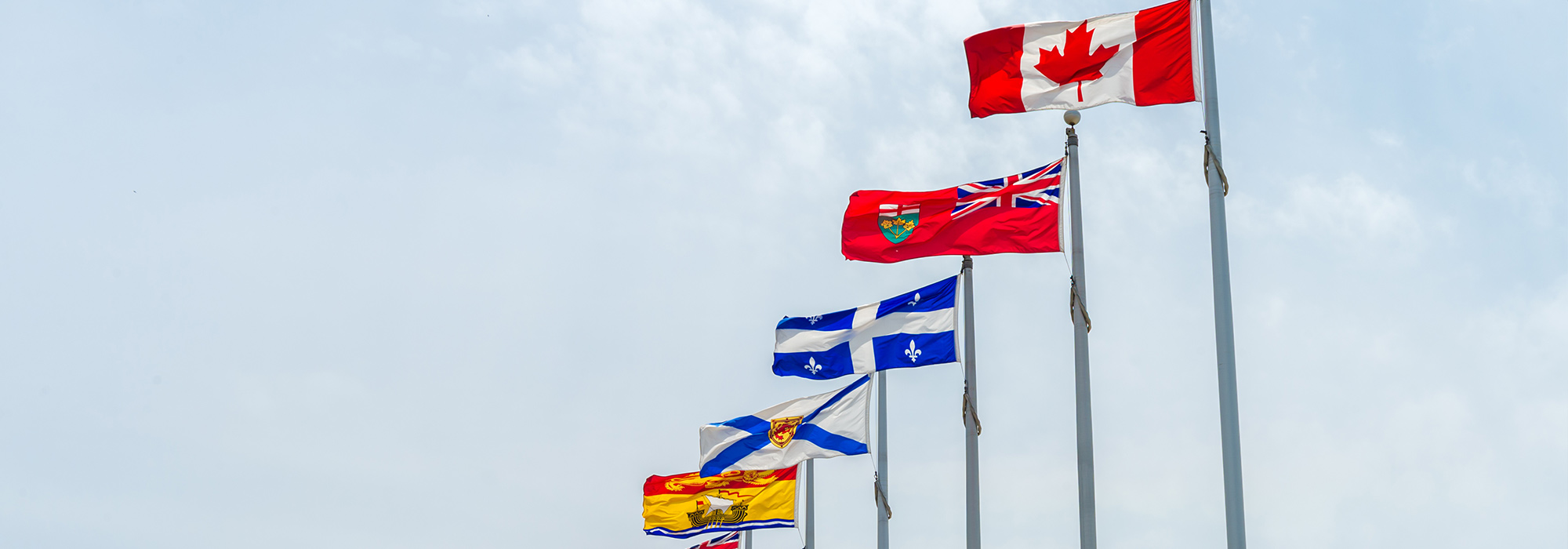
This month we’ve assembled a cover package that reflects change and continuity in Canada’s provinces. Change has come, somewhat unexpectedly, to Alberta, where Alison Redford was the surprise winner of the Progressive Conservative leadership race. “Now,” Tom Flanagan writes from Calgary, “Alison Redford is premier of Alberta, and deservedly so. She ran a better campaign than any of her competitors.” She’s the first woman to be premier of Alberta. And she comes from the Red Tory side of the Conservative house. In order to turn back a challenge from another woman, Danielle Smith of the Wildrose Alliance on the right, Flanagan suggests Redford may want to emulate “the rhetorical pragmatism” of the kind that carried Barack Obama to the White House. With an election in view next year, fascinating days are ahead in Alberta politics.
In Ontario, where Dalton McGuinty was returned for a third term as premier, continuity and boredom were the story lines of the day. The provincial campaign was marked by low levels of engagement and a record low turnout. As Robin Sears writes in a piece that gives us a close up on the campaign: “None of the above, thank you.” Certainly Tim Hudak took what appeared to be an unlose-able election for the Conservatives and lost it, or at least failed to win it.
In British Columbia, where Gordon Campbell imposed a harmonized sales tax after running against the idea in 2009, the government appears to have been blind to the possibility of opponents using the Recall and Initiative Act to organize opposition to the HST. This led ultimately to this summer’s referendum, in which the tax was axed. From Vancouver, Doug McArthur writes that the government’s “blindness to the implications of BC’s recall and initiative legislation is, in retrospect, one of the greatest political blunders in the province’s history.”
In Saskatchewan, where Premier Brad Wall faces the voters this month, it’s an entirely different story. He’s considered a lock for re-election. From Saskatoon, Daniel Béland asks what policy challenges may be facing the premier in his next term.
Provincial elections across the country have essentially stood the conventional wisdom, that it’s a dangerous time for incumbents, on its head. In Newfoundland and Labrador, in Prince Edward Island, in Manitoba and in the North West Territories, incumbents have all been returned with ease. None of these elections was even close, and only Ontario’s was competitive. The new conventional wisdom is obvious — a time of economic uncertainty is no time for change.
In Quebec, where change may indeed be in the offing, dissatisfaction with the Charest government is high on several fronts, not least over allegations of collusion and corruption in the province’s construction industry. From the Université de Sherbrooke, Jean-Herman Guay and Luc Godbout look through the entrails of a Léger Marketing poll that finds three Quebecers out four believe their tax dollars are badly managed.
In a Dossier on the Canada-US Beyond the Border initiative, we offer three pieces that form part of the larger puzzle. From Ottawa, John Higginbotham considers some of the protectionist challenges in transport. From Toronto, Lloyd McCoomb, outgoing president of the Greater Toronto Airport Authority, details some of the issues in moving people and freight through airports. From Washington, David Jones considers some political challenges around trade and security. On a related subject, Derek Burney and Kevin Ackhurst ask whether Canada is being seen as increasingly protectionist, in light of the Potash decision and the failure of the TSX-LSX exchange merger.
We also offer two insightful articles in our series on Canada and the World. Former diplomat Colin Robertson looks ahead to Stephen Harper’s upcoming visit to China. He has some trenchant observations on managing the Canada-China relationship. Then Renée Filiatrault, who served in our foreign service in Afghanistan, offers some thoughts on Canada’s mission as it transitions from a combat to a training role. Despite setbacks, and 157 Canadian deaths, she writes Canada has much to be proud of.
If you wonder about the strength of the Canadian dollar, you have only to look at it as a petro-currency, tied to the price of oil. Célestin Bimenyimana and Luc Vallée offer their thoughts on avoiding the Dutch disease in Canada.
Elsewhere this month, we’re delighted to publish the winner and runner-up of the second annual Policy Options Constitutional Affairs Essay Competition, sponsored by Norton Rose OR, LLP. In the winning entry, Alexander Wilkinson suggests that Stephen Harper’s Senate reform project does not stand up to constitutional scrutiny. Runner-up Julia Lurye makes a persuasive case in favour of a national securities regulator, an issue now before the Supreme Court. Finally, in our Verbatim, from our Innovation Nation symposium, Finance Minister Jim Flaherty observes that brains are Canada’s most important renewable resource, while David Crane sums up the conference.
Photo: Shutterstock









